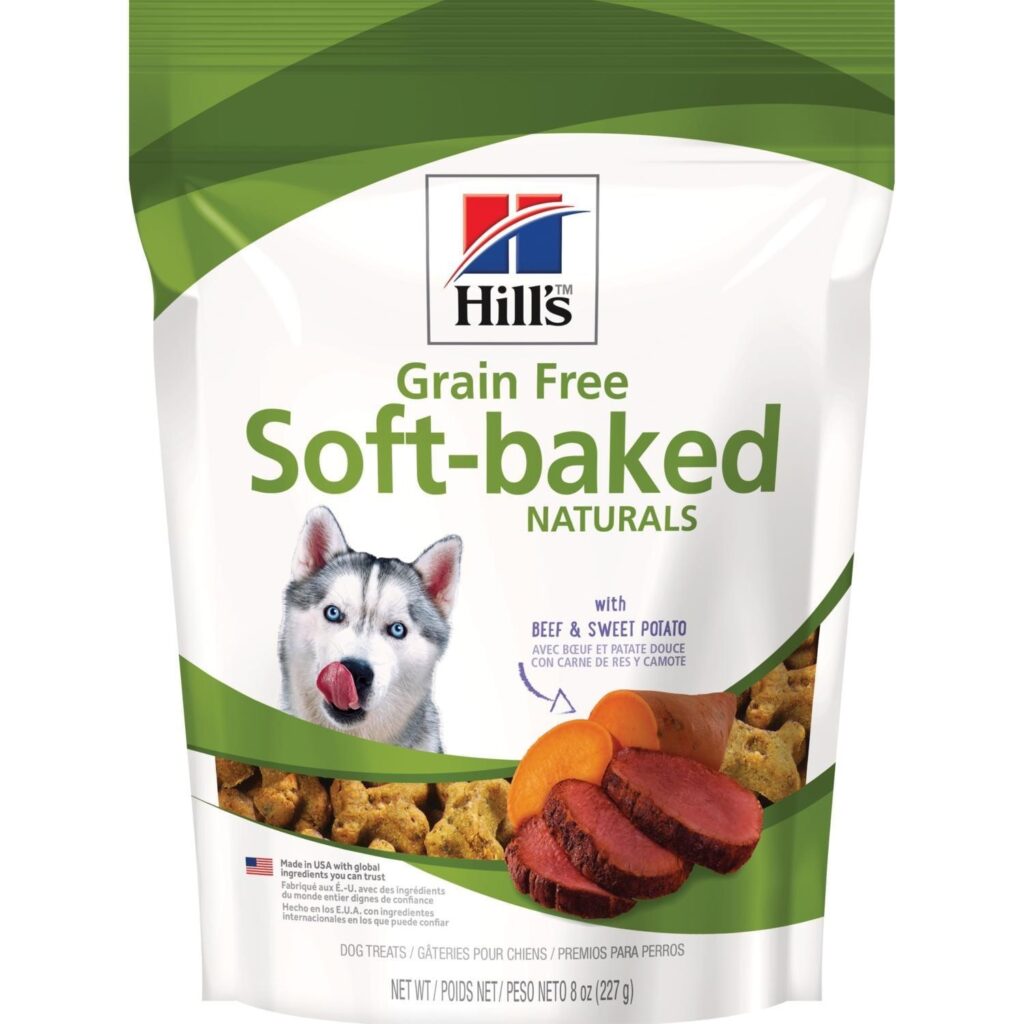As a pet owner, you’re likely always looking for ways to keep your furry friend healthy and happy. One common issue many dogs face is diarrhea, which various factors, such as changes in diet, stress, infections, or allergies, can cause.
If your dog is experiencing diarrhea, you might be searching for any natural remedies can help relieve its symptoms.
Sweet potatoes are full of fiber and popular among dogs. Fiber aids in the proper functioning of the digestive system and can even be used to treat or prevent constipation or diarrhea in most animals, including dogs.
In this article, we’ll explore the potential benefits of sweet potatoes for dogs with diarrhea.
We’ll discuss how nutrition can help ease symptoms like watery stool and frequent elimination as well as what minerals are important for healthy gut function.
By the end of this article, you’ll better understand whether the sweet potato is a safe and effective option for your dog’s diarrhea.
Nutritional Value of Sweet Potato for Dogs:

Sweet potatoes provide a range of vitamins and minerals essential for good health. Among the most important nutrients in sweet potatoes are vitamin C.
Vitamin A is good for maintaining healthy vision, a strong immune system and healthy skin. Vitamin C can help protect against cellular damage and improve the functioning of your immune system.
Sweet potatoes are full of vitamins that your dog needs to stay healthy.
Fiber—found in sweet potatoes—aids the digestive system by helping eliminate and reduce cholesterol levels.
Sweet potatoes are an excellent source of soluble and insoluble fiber, making them a great choice for dogs with digestive issues or those needing to maintain healthy blood sugar levels.
Sweet potatoes are also high in potassium, a mineral crucial in regulating blood pressure, improving heart health, and supporting muscle and nerve function.
Potassium is essential for active or athletic dogs because it prevents muscle cramps and increases endurance.
In addition to their vitamins, fiber, and potassium, sweet potatoes are also rich in antioxidants.
Antioxidants such as beta-carotene and anthocyanins can help protect cells from free radical damage, which can lead to chronic diseases such as cancer and heart disease.
How Can Sweet Potato Help with Dog Diarrhea?

If your dog is suffering from diarrhea, you may be wondering if there are any natural remedies that can help relieve its symptoms—and sweet potato may just be one of them. But how does this vegetable work?
Sweet potatoes are fiber-rich, which can help regulate digestion and prevent constipation.
Fiber acts like a sponge in the digestive tract, absorbing excess water and helping to bulk up the stool.
This can help reduce the severity and frequency of diarrhea and can also help prevent future episodes by promoting regular bowel movements.
Sweet potatoes are also high in electrolytes necessary for proper hydration.
Dogs suffering from diarrhea may lose significant fluids and electrolytes, resulting in dehydration and other health problems.
Providing your dog with sweet potatoes can help replenish its electrolyte stores and promote proper hydration, which can help prevent complications and speed up recovery.
It’s important to note that sweet potato should not be the only remedy you rely on for treating your dog’s diarrhea.
Occasionally, diarrhea can signify a more serious underlying condition, such as an infection or inflammatory bowel disease.
If your dog’s diarrhea lasts more than a day or two, seek veterinary care immediately. Also take them to the vet if they are vomiting or lethargic.
Preparing Sweet Potato for Dogs:

Sweet potatoes are a healthy and nutritious addition to your dog’s diet, but it is important that you prepare them correctly.
When choosing a sweet potato, look for one that is firm and smooth with no blemishes or soft spots. Organic varieties are often preferable as they’re less likely to have been treated with chemicals during growth.
Peel the sweet potatoes, then rinse them to remove any dirt or debris.
Cut the sweet potatoes into small, bite-sized pieces.
Dogs have a hard time chewing and digesting larger chunks of sweet potato; they’re better off with smaller cubes or slices that fit comfortably in their mouths.
Sweet potatoes can be cooked in a several ways, including boiling or steaming them. Techniques such as roasting and baking will help emphasize their natural sweetness.
Just be sure to cook the sweet potatoes thoroughly before serving them and avoid adding any seasonings or spices.
Due to their toxic effects on dogs, certain seasonings – such as garlic and onion – should be avoided.
As a nutritious treat or complement to your dog’s normal meals, give him sweet potatoes.
For more nutrition and flavor, sweet potatoes can be given as a single treat or combined with your dog’s normal meals.
However, since too many might irritate the digestive system or lead to other health issues, sweet potatoes should only be consumed in moderation.
Precautions and Risks of Feeding Sweet Potato to Dogs:
While sweet potatoes can be a healthy and nutritious addition to your dog’s diet, there are some precautions and risks that you should be aware of before feeding them to your furry friend.
Here are several things to keep in mind:
Allergies: Some dogs may be allergic to sweet potatoes or other types of root vegetables. Suppose your dog has a history of food allergies or sensitivities.
In that scenario, it’s crucial to introduce sweet potatoes gradually and look for any adverse response signs, including hives, itching, or stomach discomfort.
Digestive upset: Sweet potatoes are high in fiber, which can benefit dogs with diarrhea or constipation.
However, too much fiber can also cause digestive upset, including bloating, gas, and diarrhea.
It’s essential to feed sweet potatoes in moderation and small amounts first to see how your dog’s digestive system responds.
Obesity: Sweet potatoes are high in carbohydrates and calories, contributing to weight gain and obesity if fed in excess.
If your dog is overweight or had weight problems in the past, limiting its intake of sweet potatoes and other high-carbohydrate foods is critical.
Vitamin A toxicity: Sweet potatoes are a good vitamin A source, essential for healthy eyesight and immune function.
However, too much vitamin A can be toxic to dogs, causing bone and joint problems, liver damage, and other health issues.
Feeding sweet potatoes in moderation is essential and avoiding feeding large amounts of vitamin A-rich foods, such as liver or other organ meats.
Choking hazard: sweet potatoes should be cut into small, bite-sized pieces to prevent choking.
If you have a small dog or a dog with a history of dental issues, it’s essential to cut the sweet potatoes into small pieces or mash them before feeding.
Preparation methods: The way you prepare sweet potatoes can also affect their safety and nutritional value.
Avoid feeding sweet potatoes cooked with added salt, sugar, or other seasonings.
Fried sweet potatoes or potato chips should also be avoided, as they can be high in fat and calories.
Other Home Remedies for Dog Diarrhea:
In addition to sweet potatoes, several other home remedies can effectively treat dog diarrhea.
One popular option is canned pumpkin, which is high in fiber and can help regulate the digestive system.
Make sure to choose plain canned pumpkins without any added sugars or seasonings.
Mix a small amount of pumpkin into your dog’s food, gradually increasing the amount until you see an improvement in their stool.
Another option is plain boiled chicken and rice. This bland and easily digestible meal can help soothe your dog’s upset stomach.
Cook the chicken and rice separately, without any added fats or seasonings, and mix them in a 50/50 ratio.
Feed your dog small amounts of this mixture throughout the day, gradually increasing the portion size as their condition improves.
Probiotics and digestive enzymes can also help treat dog diarrhea.
These supplements can help restore the balance of good bacteria in your dog’s gut, which can be disrupted by illness or stress.
Look for high-quality probiotic and enzyme supplements specifically designed for dogs and follow the dosage instructions carefully.
While home remedies may be effective for mild cases of diarrhea, they may not work in severe or chronic cases.
If your dog’s diarrhea lasts more than 24 hours, is accompanied by other symptoms such as vomiting or lethargy, or shows signs of dehydration (e.g., licking his lips/unusual drinking), contact a veterinarian immediately.
Dog diarrhea can sometimes indicate a more serious underlying condition, such as an infection or inflammatory bowel disease.
Your veterinarian can perform a thorough physical exam and run diagnostic tests to determine the underlying cause of your dog’s diarrhea and recommend appropriate treatment options.
Final Words?
Sweet potatoes can be a safe and nutritious addition to your dog’s diet, particularly if they are experiencing diarrhea or other digestive issues. Sweet potatoes are a safe dog treat if you’re feeling in moderation.
Before feeding sweet potatoes to your dog, it’s advisable to mash or steam them and prepare the food.
Avoid feeding your dog raw sweet potatoes, as these can be hard to digest and may cause gastrointestinal issues.
You should also ensure your dog eats a well-balanced, high-quality diet. Always consult your veterinarian before making significant changes to your dog’s diet or treatment plan.
FAQs:
Q: Is sweet potato safe for dogs with diarrhea?
A: Yes, sweet potato can be a safe and effective home remedy for mild cases of dog diarrhea. However, properly preparing and feeding sweet potatoes is vital as monitoring your dog’s overall health and symptoms closely.
Q: How much sweet potato should I feed my dog for diarrhea?
A: It’s best to start with small amounts of sweet potato, gradually increasing the portion size as your dog’s condition improves.
Generally, you can feed your dog up to one tablespoon of mashed, cooked sweet potato per 10 pounds of body weight up to twice a day.
Q: Can raw sweet potato help with dog diarrhea?
A: Raw sweet potato can cause digestive problems in dogs, so it’s best to cook or steam it before feeding the vegetable to your pet.
Q: Are there any risks or side effects of feeding sweet potatoes to dogs?
A: If you feed your dog sweet potatoes, make sure that it’s only a small part of his diet and avoid giving him flavored or sugary varieties.
The sweet potatoes themselves don’t cause intestinal problems, but if they’re fed to a dog in excessive quantities or with added seasonings or sweeteners, the result may be digestive distress.
